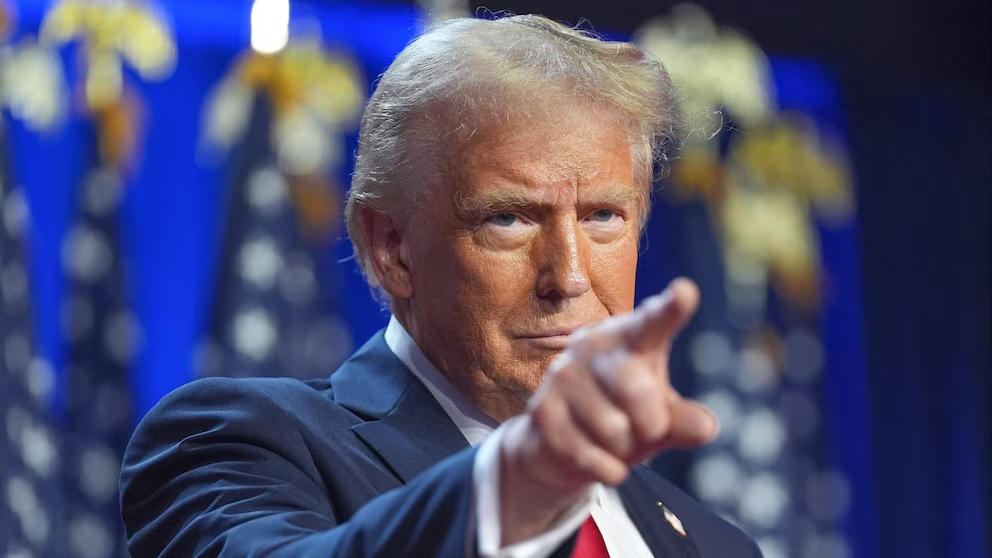World leaders remain on edge as they await the details of U.S. President Donald Trump’s highly anticipated tariff announcement, set for April 2.
The specifics of the new trade measures remain largely unknown, heightening uncertainty in global markets and among business leaders.
White House press secretary Karoline Leavitt revealed that President Trump spent the day with his trade team, “perfecting” the final details of the tariff plan.
She also indicated that multiple countries have reached out to the White House in a last-minute effort to negotiate exemptions or modifications.
“The President remains open to taking calls, and discussions are ongoing,” Leavitt told reporters, leaving much to speculation. However, she declined to disclose any specifics, stating, “You will have to wait until tomorrow to find out.”
Global Reactions and Preparations
Governments around the world are already preparing their responses to the expected tariffs. The European Union has signaled its readiness to retaliate, with trade officials indicating that countermeasures could target key U.S. exports, such as agricultural products, luxury goods, and automobiles. The EU has historically been a vocal opponent of the Trump administration’s protectionist trade policies and has previously implemented retaliatory tariffs in response to U.S. measures on steel and aluminum.
The UK, meanwhile, is taking a more cautious approach. Prime Minister Keir Starmer stated that Britain would avoid “a knee-jerk response” and would carefully assess the situation before taking action. This position reflects the UK’s current balancing act between maintaining strong relations with the U.S. while also safeguarding its economic interests post-Brexit.
These new measures will be implemented on top of existing U.S. tariffs on aluminum, steel, and vehicles, all of which have contributed to significant disruptions in global trade. Washington has also imposed increased levies on all imports from China as part of its ongoing trade dispute with Beijing, which has now lasted several years.
The continuation of these trade tensions has raised concerns about the stability of international supply chains and the global economy.
The uncertainty surrounding the tariff announcement has led to volatility in global markets. Stock indices in Europe and Asia saw sharp declines on Monday, with investors fearing that the tariffs would trigger an economic slowdown or further disrupt global trade relationships.
Analysts have warned that industries reliant on international trade—such as automotive, manufacturing, and technology—could be particularly affected, as they face higher production costs and reduced market access.
The Ongoing Trade War with China
One of the most anticipated aspects of President Trump’s tariff announcement is whether he will escalate the trade war with China. Since taking office, Trump has pursued an aggressive tariff strategy against Beijing, arguing that China’s trade practices are unfair and detrimental to American businesses.
This includes allegations of intellectual property theft, forced technology transfers, and unfair subsidies to Chinese companies.
China has repeatedly denounced the tariffs and has responded with its countermeasures, imposing tariffs on U.S. goods and taking actions in areas such as technology and agriculture. Despite ongoing negotiations, tensions between the two economic giants remain high, and there is widespread speculation that the new tariff measures could further strain U.S.-China relations.
A senior Chinese official, speaking anonymously, warned that any further escalation of trade restrictions would prompt “strong and immediate countermeasures” from Beijing.
Chinese state media have also criticized the Trump administration’s approach, calling it “reckless and harmful to global economic stability.” The fear is that further tariffs could derail attempts to reach a more permanent trade agreement and exacerbate tensions that have already led to significant economic disruptions on both sides.
Business Leaders and Economists Weigh In
Economists and business leaders have also been closely monitoring the situation. Many fear that additional tariffs could disrupt supply chains, raise consumer prices, and harm both American and global economies.
“Tariffs are essentially a tax on businesses and consumers,” said Mark Peterson, an economist at the International Trade Council. “If these measures are too aggressive, we could see job losses, increased production costs, and slower economic growth.”
Peterson emphasized that the cumulative effect of tariffs could create long-term damage to global trade relationships, as countries seek alternative markets and suppliers.
Meanwhile, some U.S. industries, particularly in the steel and aluminum sectors, have welcomed the potential for further protectionist measures. These industries argue that the tariffs are necessary to protect domestic producers from unfair foreign competition. However, this protectionism has raised concerns about retaliatory measures that could undermine other sectors of the U.S. economy, including agriculture and technology.
As the world anxiously awaits the official tariff announcement, all eyes are on Washington.
President Trump has built much of his economic policy around strong trade measures, and this latest move is expected to have far-reaching consequences, not only for U.S. businesses but also for global trade dynamics.
With the clock ticking, businesses, governments, and consumers alike will soon learn how the new tariffs will reshape international trade.
Until then, uncertainty remains the defining feature of the situation, with leaders across the globe preparing for a turbulent economic future.
The coming days will likely reveal how the Trump administration plans to address its economic priorities while navigating a complex web of international trade relationships.

